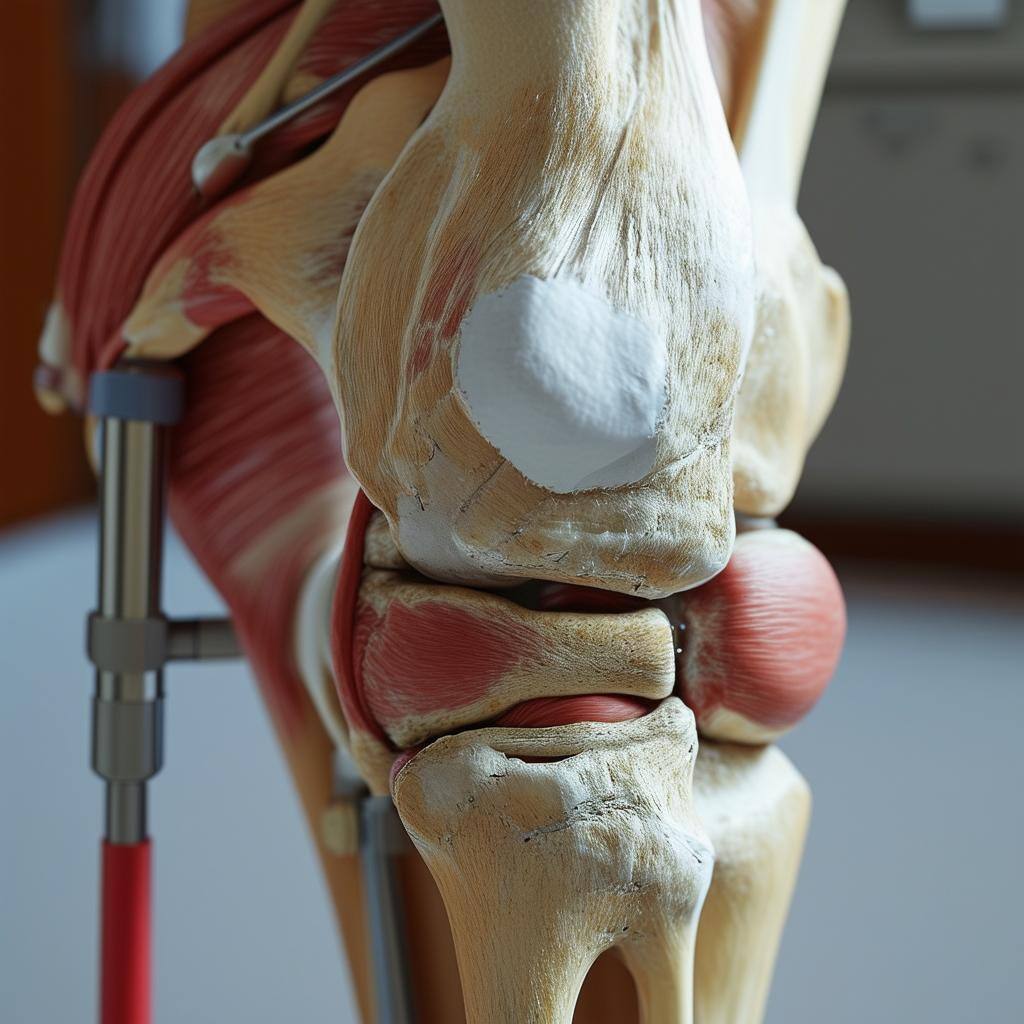
Introduction
Experiencing pain or discomfort in your hand can be more than just a minor inconvenience. Seeking timely medical attention for hand problems is crucial to maintain the functionality and health of your hands. Whether it's due to an injury, repetitive strain, or a chronic condition, early intervention can prevent further complications and promote faster recovery.
A hand specialist is an orthopedic doctor who focuses on diagnosing, treating, and preventing disorders in the hand, wrist, and forearm. These specialists possess extensive knowledge of hand anatomy and are trained to address various conditions such as:
-
Arthritis
-
Nerve issues
-
Fractures
-
Wounds
-
Sports injuries
-
Tendon disorders
Hand specialists provide both non-surgical treatments like medications, splinting, and injections, as well as surgical options when necessary. Their expertise ensures that you receive the most appropriate care tailored to your specific needs. It's important to note that seeking specialized medical attention for hand problems is as crucial as it is for other body parts such as the hip. Just like how you would consult a specialist for hip replacement surgery, consulting a hand specialist for any significant hand issues helps in understanding the best course of treatment for a speedy recovery.
Common Hand Problems and When to Seek Treatment
Hand problems can significantly impact daily activities. Common issues include:
-
Arthritis: A condition causing pain, swelling, and stiffness in the joints.
-
Nerve Problems: Conditions such as carpal tunnel syndrome that affect nerve function.
-
Fractures: Broken bones in the hand or wrist, often resulting from accidents or falls.
-
Wounds: Cuts or lacerations that may require specialized care.
-
Sports Injuries: Damage resulting from physical activities, impacting muscles, tendons, and ligaments.
-
Tendon Disorders: Issues like trigger finger or tendonitis causing pain and movement restriction.
Each condition can range from mild to severe, requiring expert evaluation for appropriate treatment.
Symptoms That Indicate the Need for Urgent Medical Evaluation
Recognizing symptoms early can prevent complications. Seek urgent medical attention if you experience:
-
Persistent or worsening pain
-
Reduced range of motion or grip strength
-
Swelling or inflammation that does not subside
-
Numbness or tingling indicating potential nerve damage
-
Visible deformities or inability to move fingers
Symptoms like these often indicate underlying problems that could benefit from a specialist's expertise.
[!IMPORTANT]
For more detailed information on related orthopedic issues, consider reading our guide on knee replacement surgery procedure and knee replacement surgery procedures. These resources provide valuable insights into surgical treatments for severe joint conditions.
Timely consultation with a hand specialist ensures proper diagnosis and effective treatment plans tailored to individual needs.
Different Treatment Approaches by Hand Specialists
1. Non-Surgical Treatment Options
Many hand problems can be effectively managed without surgery. Hand specialists offer a variety of non-surgical interventions tailored to the specific condition and individual needs.
Non-Surgical Interventions Offered:
Medication
-
Pain Relievers: Over-the-counter pain relievers like ibuprofen or acetaminophen help in managing mild to moderate pain.
-
Anti-Inflammatory Drugs: Prescription medications reduce inflammation and provide relief in conditions such as arthritis.
-
Steroid Injections: Corticosteroids are injected directly into the affected area to reduce inflammation and alleviate pain quickly.
Splinting
-
Immobilization: Splints or braces stabilize the hand, wrist, or fingers, preventing movement that could worsen the condition.
-
Custom Splints: Tailored splints cater to specific needs, providing comfort and effective immobilization.
Physical Therapy
-
Exercises: Specialized exercises improve range of motion, strength, and flexibility.
-
Manual Therapy: Techniques like massage and manipulation help in reducing stiffness and enhancing mobility.
Benefits of Non-Surgical Methods:
-
Less Invasive: No cuts or incisions are required, reducing risks associated with surgery.
-
Shorter Recovery Time: Patients often experience quicker recovery periods compared to surgical methods.
-
Cost-Effective: Generally less expensive than surgical treatments.
Limitations of Non-Surgical Methods:
-
Temporary Relief: May provide only temporary relief for chronic conditions.
-
Limited Efficacy: Not always effective for severe conditions requiring structural correction.
-
Multiple Sessions Needed: May require repeated treatments over a longer period.
For those considering non-surgical options, exploring resources such as TopDoc can be beneficial in finding experienced specialists who offer these treatments.
2. Surgical Treatment Options and When They Are Necessary
When conservative treatments fail to provide relief or if the condition is too advanced, surgical intervention may be necessary. Hand specialists are skilled in various surgical procedures designed to restore function and alleviate pain.
In-depth information on different surgical procedures can also be found through specialized resources. For example, Total Shoulder Replacement Procedure Details provides insights into diagnostic criteria, procedure details, and recovery processes for shoulder conditions, which can be useful for understanding surgical approaches in hand treatment.
It's worth noting that similar to the shoulder, other joints like the knee may require surgical intervention as well. Exploring resources that provide comprehensive information on surgical procedures for different joints can help patients make informed decisions about their treatment options.
Remember, whether opting for non-surgical or surgical methods, it's important to consult with a qualified hand specialist who can guide you through the most appropriate course of action based on your individual needs and condition.
2. Surgical Treatment Options and When They Are Necessary
Hand specialists often consider surgical treatment options when conservative methods such as medication, splinting, and injections fail to alleviate symptoms or improve function. Surgery may be necessary to address severe conditions that significantly impair hand functionality or quality of life.
Understanding Surgical Approaches Taken by Hand Specialists
When non-surgical treatment options are exhausted, hand specialists might suggest surgery to:
-
Repair damaged tendons or ligaments: Severe injuries may require surgical intervention to reattach or reconstruct tendons and ligaments.
-
Correct fractures: Complex fractures that don't heal properly with casting or splinting might need surgical fixation using plates, screws, or pins.
-
Relieve nerve compression: Conditions like carpal tunnel syndrome can necessitate procedures such as carpal tunnel release to alleviate pressure on the median nerve.
-
Excise tumors or cysts: Growths in the hand can be surgically removed if they cause pain or functional limitations.
Examples of Key Surgical Interventions for Specific Hand Problems
-
Carpal Tunnel Release: This surgery involves cutting the ligament pressing on the median nerve to relieve carpal tunnel syndrome symptoms.
-
Tendon Repair: For injuries like tendon lacerations, surgeons stitch the torn ends together to restore normal movement.
-
Joint Replacement (Arthroplasty): In cases of severe arthritis, damaged joint surfaces are replaced with artificial components to reduce pain and improve function.
-
Fracture Fixation: Using metal plates, screws, or rods, surgeons stabilize broken bones to ensure proper healing.
Hand specialists strive to use minimally invasive techniques whenever possible to reduce recovery time and enhance outcomes. If you are considering surgery for a hand condition, it is crucial to discuss all available options with your specialist while adhering to the TopDoc - Provider Community Standards to ensure the highest quality of care.
Visiting a Hand Specialist: From Finding One Near You to Post-Treatment Care
Finding a Hand Specialist in Your Area
Locating a qualified hand specialist can be crucial for effective diagnosis and treatment. Here are some tips to help you find the right professional:
Ask for Referrals
-
Primary Care Physician: They often have a network of specialists they trust.
-
Friends and Family: Personal recommendations can lead you to reputable professionals.
-
Online Reviews: Websites like Healthgrades, Zocdoc, and Yelp provide patient reviews.
Research Credentials
-
Verify that the specialist is board-certified in orthopedic surgery or plastic surgery with additional fellowship training in hand surgery.
-
Look for memberships in professional organizations such as the American Society for Surgery of the Hand (ASSH).
Consider Experience
-
Specialists with extensive experience in treating specific conditions like carpal tunnel syndrome or arthritis usually provide better outcomes.
-
Inquire about the number of similar procedures they have performed.
Check Hospital Affiliations
-
Ensure the specialist is affiliated with reputable hospitals known for their orthopedic care.
Evaluate Communication Style
-
Choose a hand specialist who listens and addresses your concerns effectively. Good communication is key to successful treatment.
Using these tips makes it easier to locate a qualified hand doctor near you or a hand surgeon near you who can address your specific needs.
Preparing for Your Appointment
To make the most out of your visit to an orthopedic hand doctor:
-
Gather Medical Records: Collect all relevant medical records, including previous X-rays, MRI scans, and lab results related to your hand condition.
-
Document Symptoms: Keep a detailed log of your symptoms, including when they started, their severity, and any activities that worsen or alleviate them.
-
List Medications: Write down all medications you are currently taking, including over-the-counter drugs and supplements.
-
Prepare Questions: Make a list of questions you want to ask the specialist. This ensures all your concerns are addressed during the appointment.
The Consultation Process: What to Expect
Understanding what happens during your first visit can alleviate anxiety:
-
Initial Evaluation: The hand specialist will review your medical history and discuss your symptoms in detail.
-
Physical Examination: They will conduct a thorough physical examination of your hand, wrist, and forearm to assess range of motion, strength, and areas of pain or tenderness.
-
Diagnostic Tests: Depending on initial findings, imaging studies such as X-rays, MRIs, or ultrasounds may be ordered to get a clearer picture of the underlying issue.
-
Discussion of Findings: Once all necessary information is gathered, the specialist will explain the diagnosis and discuss potential treatment options. This could include both non-surgical and surgical approaches depending on your condition.
-
Treatment Plan Development: A personalized treatment plan will be developed based on your specific needs and preferences. This plan may involve medications, physical therapy, injections, or possibly surgical intervention if conservative treatments are not effective.
By knowing what to expect during an appointment with a hand specialist (what to expect during appointment with hand specialist), you can approach the process with confidence and clarity.
Preparing for Your Appointment
Preparing for your appointment with a hand specialist ensures you make the most out of your visit. Here are some useful tips to help you get ready:
Gather Medical Records
Bringing relevant medical records can provide valuable information to your specialist. This includes:
-
Previous X-rays or MRI scans: Any imaging studies related to your hand condition.
-
Past medical history: Especially if you have had previous surgeries or treatments on your hands.
-
List of medications: Include all current medications, supplements, and dosages.
Document Symptoms
Keeping a detailed record of your symptoms will assist the specialist in diagnosing your condition effectively. Consider noting:
-
Pain levels: Rate your pain on a scale from 1 to 10.
-
Specific activities that worsen symptoms: Identify movements or tasks that trigger pain.
-
Duration and frequency: Note how long you have been experiencing symptoms and how often they occur.
Prepare Questions
Having a list of questions ready can help you understand your condition better and make informed decisions about your treatment. Examples include:
-
What is the likely cause of my symptoms?
-
What are my treatment options?
-
Are there any non-surgical methods I should try first?
-
What are the risks and benefits of surgery?
Wear Comfortable Clothing
Ensure you wear clothing that allows easy access to your hand and arm for examination. Avoid tight-fitting sleeves which might hinder the process.
Bring a Support Person
Having someone accompany you can be beneficial. They can help remember details discussed during the appointment and provide support.
Being well-prepared not only maximizes the efficiency of your consultation but also empowers you to take an active role in your treatment plan. Hand specialists aim to provide comprehensive care, so coming prepared facilitates this process significantly.
The Consultation Process: What to Expect
Understanding what happens during a consultation with a hand specialist can help ease any anxiety and ensure you're well-prepared. Here's an overview of the typical phases:
Initial Assessment
-
Medical History Review: The specialist will begin by reviewing your medical history, including any previous injuries, surgeries, or ongoing conditions that could affect your hand health.
-
Symptom Discussion: You'll discuss your symptoms in detail, such as pain levels, frequency, and any activities that exacerbate the discomfort.
Physical Examination
-
Range of Motion Tests: The doctor will assess your hand's range of motion and grip strength. This helps identify any limitations or weaknesses.
-
Palpation: By gently pressing on different areas of your hand, the specialist can locate specific points of pain or swelling.
Diagnostic Tests
-
Imaging Studies: X-rays or MRI scans might be necessary to get a detailed view of the bones, joints, and soft tissues. These images provide crucial information for accurate diagnosis.
-
Nerve Conduction Studies: If a nerve problem is suspected, tests like electromyography (EMG) may be conducted to evaluate nerve function.
Finding a hand specialist near me can be simplified by searching online directories or asking for recommendations from your primary care physician.
Developing a Treatment Plan
Once all diagnostic tests are completed, the hand specialist will develop a personalized treatment plan tailored to your specific condition. This plan may include:
-
Non-Surgical Options: Medications, splinting, or physical therapy
-
Surgical Interventions: If necessary, procedures like carpal tunnel release or tendon repair
Follow-Up and Rehabilitation
Post-treatment rehabilitation plays a vital role in recovery. Specialized hand therapists work closely with you to optimize hand function through exercises and other therapeutic techniques.
Knowing what to expect during an appointment with a hand specialist can make the process smoother and more effective. Being prepared ensures you receive the best possible care and outcomes for your hand health.
The Vital Role of Rehabilitation in Hand Health
Post-treatment rehabilitation and therapy play a critical role in the recovery process for hand conditions. Specialized hand therapists are integral to this phase, offering expertise in optimizing hand function and aiding in comprehensive recovery.
Importance of Post-Treatment Rehabilitation and Therapy
-
Enhanced Recovery: Rehabilitation helps restore strength, flexibility, and function, ensuring that the hand heals properly after treatment.
-
Pain Management: Therapeutic exercises and techniques can significantly reduce pain and inflammation.
-
Preventing Complications: Regular therapy sessions help prevent stiffness, scarring, and other complications that can arise post-treatment.
Role of Specialized Hand Therapists
-
Custom Treatment Plans: Hand therapists create personalized rehabilitation programs tailored to individual needs, addressing specific issues like mobility, strength, and fine motor skills.
-
Expert Guidance: With specialized knowledge in hand anatomy and function, these therapists provide targeted exercises and interventions.
-
Support and Monitoring: Continuous monitoring ensures progress is tracked, adjustments are made as needed, and patients receive the support they need throughout their recovery journey.
Hand specialists often work closely with hand therapists to ensure a seamless transition from treatment to rehabilitation. This collaboration is key to achieving optimal outcomes for anyone facing hand health challenges.
In Conclusion
Prioritizing timely medical intervention is crucial for optimal hand care. Early diagnosis and treatment can prevent more severe complications and ensure better outcomes.
Encouragement to Schedule an Appointment:
-
If you experience any symptoms or concerns related to hand pain, reduced range of motion, or other issues, do not hesitate to seek professional care.
-
Hand specialists are well-equipped to provide both non-surgical and surgical treatments tailored to your specific needs.
-
Taking proactive steps by consulting a specialist can significantly enhance your hand health and overall quality of life.
Ensuring your hands are in the best possible condition is important. Don't wait; schedule an appointment with a hand specialist if you're experiencing any discomfort or symptoms.
FAQs (Frequently Asked Questions)
When should I visit a hand specialist?
You should consider visiting a hand specialist if you are experiencing hand problems such as conditions, injuries, arthritis, nerve problems, fractures, wounds, sports injuries, or tendon disorders. It is important to seek timely medical attention for any symptoms that indicate the need for urgent evaluation.
What are the different treatment approaches offered by hand specialists?
Hand specialists offer non-surgical treatment options such as medication, splinting, and injections. They also provide surgical treatment options when conservative treatments fail. It's important to understand the benefits and limitations of choosing non-surgical methods and to consider surgery when necessary.
How can I find a hand specialist in my area?
You can locate a qualified hand specialist in your proximity by considering tips for finding one near you and by understanding the importance of choosing a specialist with relevant experience. This may involve researching hand doctors, hand surgeons, or orthopedic hand doctors near you.
What should I do to prepare for my appointment with a hand specialist?
To make the most out of your visit to the hand specialist, it's important to prepare by gathering medical records and documenting symptoms. This will help ensure that the consultation process is efficient and comprehensive.
What can I expect during my appointment with a hand specialist?
During your appointment with a hand specialist, you can expect a thorough consultation process which may include physical examination, imaging studies, and other diagnostic tests that are relevant to your specific hand concerns.
Why is post-treatment rehabilitation and therapy important for hand health?
Post-treatment rehabilitation and therapy play a vital role in optimizing hand function and recovery. Understanding the importance of specialized hand therapists in this process is crucial for achieving optimal hand health outcomes.



Comments (0)